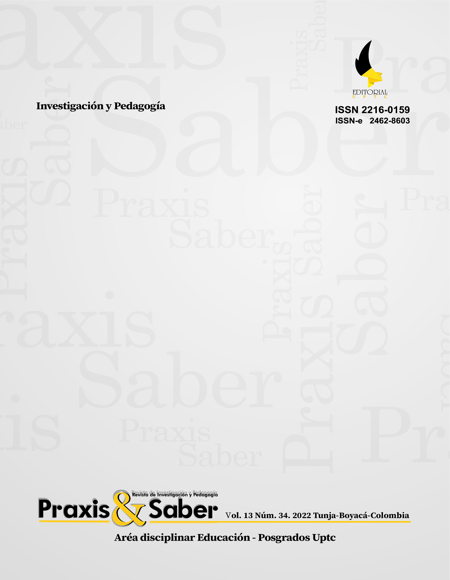Modernity, capitalism, and university. Contention between the four historical ethos in Bolívar Echeverría

Abstract
As a method of reading the university, the four historical ethos of capitalist modernity are presented, in the perspective of the Ecuadorian-Mexican philosopher Bolívar Echeverría. This article problematizes the thesis that the different configurations of the university—including the critical configurations—inherit the problems of modernity regarding the substitution of the value of use for the value of exchange, a substitution from which the spiritual goods of culture do not escape. To address this thesis, five sections are presented: The problem of modernity; Modernity and capitalism; The method: a reading of the university from the four historical ethos; Approaches to a reading of the university from the four historical ethos; and Final considerations, which raise the possibility of a re-reading of the whole history of modernity, of the university, and of capitalism, based on the contention between the four historical ethos.
Keywords
modernity, capitalism, university, value of use/value of exchange, historical ethos
References
- Arteta, Á. (2020). Bolívar Echeverría: traductor de Walter Benjamin.
- Acta Poética, 41(1), 91-113. https://doi.org/10-19130/iifl.ap.2020.1.867 DOI: https://doi.org/10.19130/iifl.ap.2020.1.867
- Artunduaga, R. (2019). Cultura mestiza y regímenes estéticos de la vida cotidiana. El ethos barroco de Bolívar Echeverría. Cuadernos de Filosofía Latinoamericana, 40(120), 55-68. https://doi.org/10.15332/25005375/5376 DOI: https://doi.org/10.15332/25005375/5376
- Benjamin, W. (2010). Tesis sobre la historia y otros fragmentos. Ediciones Desde Abajo.
- Carrión, C. (2017). El ethos barroco: una lectura desde la teoría de los modos literarios. Universitas. Revista de Ciencias Sociales y Humanas, (26), 163-178. https://doi.org/10.17163/uni.n26.2017.06 DOI: https://doi.org/10.17163/uni.n26.2017.06
- Echeverría, B. (1997). Las ilusiones de la Modernidad: ensayos. UNAM; El equilibrista.
- Echeverría, B. (2000). La modernidad de lo barroco. Ediciones Era; UNAM.
- Echeverría, B. (2008). La “modernidad americana” (claves para su comprensión). En B. Echeverría (Comp.), La americanización de la modernidad (pp. 12-49). Ediciones Era. DOI: https://doi.org/10.2307/j.ctv1xxw14
- Echeverría, B. (2011). Antología. Crítica de la Modernidad capitalista. Oxfam; Vicepresidencia del Estado Plurinacional de Bolivia.
- Echeverría, B. (2016). Modernidad y blanquitud. Ediciones Era.
- Gandler, S. (2020). Algunos comentarios críticos a la obra de Bolívar
- Echeverría. Telos, 22(3), 640-652. https://doi.org/10.36390/telos223.12 DOI: https://doi.org/10.36390/telos223.12
- Gómez, L., & Pulido, Ó. (2018). La pedagogía y su presente: umbrales y relaciones. Praxis & Saber, 7(13), 9-14. https://doi.org/10.19053/22160159.4157 DOI: https://doi.org/10.19053/22160159.4157
- Horkheimer, M., & Adorno, T. (2018). Dialéctica de la Ilustración: fragmentos filosóficos. Trotta.
- Juárez, D., Olmos, A., & Ríos, E. (2020). Educación en territorios rurales en Iberoamérica. Fondo Editorial Universidad Católica de Oriente.
- Koyré, A. (1999). Del mundo cerrado al universo infinito. Siglo XXI.
- Leite, G. (2020). Reflexiones sobre la dialéctica del atraso en el capitalismo: puntos de convergencia entre el joven Marx y Francisco de Oliveira. Encuentros, 18(3), 36-47. https://doi.org/10.15665/encuent.v18i3.2130 DOI: https://doi.org/10.15665/encuent.v18i3.2130
- Luckacs, G. (1984). Historia y conciencia de clase. Tomo II. Ediciones Sarpe.
- Marx, K. (2001). El capital. Crítica a la economía política. Siglo XXI.
- Mendoza, C. (2019). Bolívar Echeverría: crítica, forma natural y teología negativa. Castalia. Revista de Psicología de la Academia, (33), 5-17. https://doi.org/10.25074/07198051.33.1584 DOI: https://doi.org/10.25074/07198051.33.1584
- Millán, M. (2018). Re/centrando al sujeto social: valor de uso, metabolismo social y estrategias anticapitalistas. Nómadas, (48), 167-179. https://doi.org/10.30578/nomadas.n48a10 DOI: https://doi.org/10.30578/nomadas.n48a10
- Mumford, L. (1992). Técnica y civilización. Alianza Editorial.
- O´ Gorman, E. (1958). La invención de América. Fondo de Cultura Económica.
- Pérez, F., & Hincapié, A. (2018). La otra universidad en Colombia: la lucha por la emancipación humana. Revista Kavilando, 10(2), 342-355.
- Pérez, F. (2019). Emergencia de otra universidad: popular, indígena, campesina e intercultural. Revista Encuentros. 10 (61-85).
- Restrepo, C. (2013). Universidad-biopolítica. Razones para las nuevas luchas estudiantiles. En A. Ruiz (Comp.), Universidad e investigación (pp. 49-62). Universidad Pontificia Bolivariana.
- Soto, G. (2007). Filosofía medieval. Universidad Pedagógica Nacional; Ediciones San Pablo.
- Valle, A. (2021). Investigación educativa: problemática y carácter multidisciplinario. Reflexiones teóricas y filosóficas. Praxis & Saber, 12(29), e11469. https://doi.org/10.19053/22160159.v12.n29.2021.11469 DOI: https://doi.org/10.19053/22160159.v12.n29.2021.11469
- Weber, M. (1991). La ética protestante y el espíritu del capitalismo. Premia.
